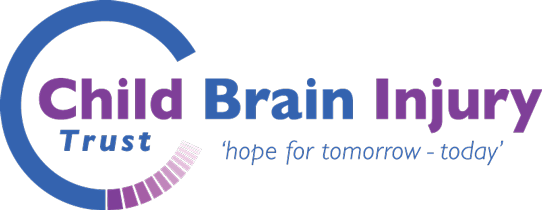A New Year always welcomes change, or at least intention of it. However, with life busier than ever before, some pressures are unavoidable. If you are feeling stressed or burnt out – you most definitely are not alone. The Mental Health Foundation reported that in 2022, 74% of adults in the UK have felt so stressed out, that they have been overwhelmed or unable to cope.
The figures amongst children and young people are also showing record increases, with the National Association of Head Teachers Survey 2022, finding that mental health problems among pupils had increased since the start of the academic year, including feeling low in self-esteem (86%), feeling depressed (76%), and having feelings of anger (68%)*.
With so many experiencing stress or poor mental health, society could be at risk as of beginning to dismiss this sometimes default-state, as ‘normal’. We need to consider the implications of this:-
Considering stress, it is important for us to recognise that stress is not just an isolated feeling, but a physiological reaction that affects our entire body – and probably far more than you may realise. For example, did you know that when your body goes into a state of stress, your nails temporarily stop growing? Or that your digestive system is put on hold? In this article, we will look into the physiological changes which are induced when our bodies goes in to ‘stress response’, consider why we cannot ignore the symptoms of stress, and hopefully gain some ‘food for thought’ for setting our intentions for the future.
The first thing for us to recognise is that our stress response (sometimes referred to as ‘fight or flight’), is primarily aimed to keep us safe. Indeed, this self-preservation response is imperative to our very existence and our natural, automatic response to danger. In fact, without it, humans would not be able to survive on the planet.
Put simply, the stress response works like this:
- Your brain registers danger.
- Sends signals to body.
- Body reacts: fight or flight
In reality though, what happens within our bodies is far more complex.
When we anticipate a ‘danger’ arising, the hypothalamus (an area within the brain which acts essentially as a control centre), produces a hormone that stimulates our pituitary gland. This gland then secretes a hormone called ‘adrenocorticotropin’ (ACTH), which then stimulates the adrenal glands to make and release cortisol into the blood. Cortisol (known as the ‘stress hormone’) then releases sugar (glucose) into the bloodstream, and enhances the brains use of glucose, to ensure there is plenty of availability for tissue repair (we are about to fight or flight after-all!). Adrenaline then functions to increase our heartrate, and messages are sent via our neurological system (brain and spinal cord), to increase muscle tension (to get us ready to move) and our blood is re-directed to be where it is deemed most useful (our peripherals, i.e. arms and legs: away from our digestive systems). Our body may begin to sweat to help us to regulate our temperature as all of this takes place.
As you can imagine, this powerful response was especially useful in the times of escaping from sabir-tooth tigers, when a genuine ‘run-or-get-eaten’ approach was exceedingly helpful.
Known as ‘acute stress’, this strong physiological reaction is ideally only a temporary state, with our bodies returning to normal functioning when the perceived danger has passed. There can, however, be some problems:
- If our bodies do not perceive the threat to disappear (meaning we may enter a prolonged state of stress).
- Our bodies may not always be the most accurate at perceiving a real threat from a minor ‘threat’ or extent of that threat.
That is not to say that certain situations in life do not need this physiological response – they do – and a healthy, short-lived-response in some situations is just the boost we need (such instances may be the added alertness before an exam, or a sportsperson, pre-race).
However, stress if is experienced on a regular basis and we do not have adequate time to recover, this can lead to health implications including chronic illness due to the environmental changes within the body. For example, the digestive system commonly suffers during stress due to this area of the body becoming neglected in blood supply. The phrase ‘feeling butterflies in my stomach’, when describing nerves is not just a phrase, but a very real feeling which occurs as the stress system reaction pumps blood away from the digestive organs. Studies have shown links to long term digestive issues such as irritable bowel syndrome (IBS) can be caused by this. Even skin problems, such as dry or itchy skin, eczema, or hair and nail growth can be affected as these areas are all deemed ‘non-emergency’ to the stress system, and thus get neglected.
The good news?
For both adults and children, there are things we can do to help ourselves.
There is a great analogy which can be used to help us understand the powerful reaction of the body during stress, and the power we can take back if we can control it; ‘The Rider, The Elephant and The Path’, created originally by the Psychologist Jonathan Haidt.
I would like you to consider ‘the rider’ as the rational side of our mind. Typically, this is the pre-frontal cortex of our brains, and responsible for our decision making, logic and reason.
‘The elephant’ is a metaphor for our emotional minds, and in this analogy stands for our body’s stress system.
‘The path’ is the environment around us.
Our logical and decision making riders, most of the time, sit happily on top of our elephants, telling them what to do and where to go. The elephants (most of the time) lumber along quite happily, listening to their rider. If something spooks the elephant though (triggering the stress response), the poor rider does not stand much chance against the huge, powerful elephant. Our physiological reaction during stress is similar: intense and strong physically, and difficult for us to control.
So what of the path? There can be things on the path that may spook the elephant, just as things in life can induce anxiety in us. However, it is our environments, or ‘path’, that can enable us to regain our control. Just think: food and water stops along the path may re-focus and soothe an elephant – helping to create a more positive and calm disposition. We may not be able to change many aspects in our lives which can feel stressful (work, organising children, communicating with schools, or fitting so many things into each day), but by scheduling ourselves time-out, we can give our mind and body time to relax and breathe, breaking the cycle of stress. Doing this regularly can have a profound effect, and redirect us away from long term stress-related illness.
The power of relaxation is often overlooked, but it can be one of the keys to unlocking a different way of life if you are feeling stressed or run down on a regular basis. Whether you have 10 minutes, 30 minutes or over an hour, doing a mindful or stress-relieving activity can alleviate the symptoms of stress, and as with stress itself, actually creates a chemical change within your body – through this time out, which may allow for a more positive physical reaction and clearer mind.
In part 2 of this blog we will look at the positive hormonal reaction when undertaking mindful activities for both adults and children, and why taking time to do these things is so important…
References:


